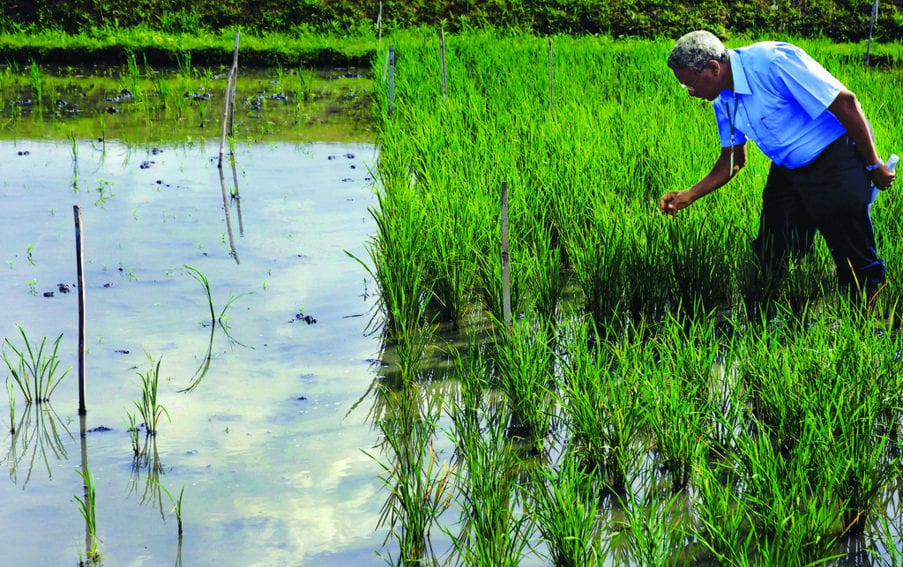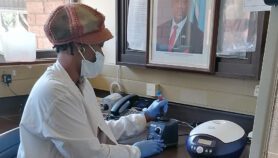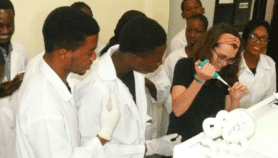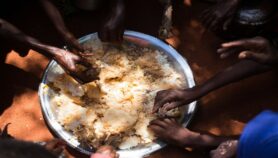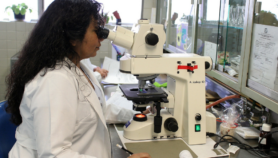By: Maina Waruru
Send to a friend
The details you provide on this page will not be used to send unsolicited email, and will not be sold to a 3rd party. See privacy policy.
[NAKURU, KENYA] Should slow uptake of research in Africa discourage scientists from conducting more research or should they build on success stories where uptake has achieved success and redouble their efforts?
Are Africans in the current generation inherently slow in adapting to new technologies even when they stand to greatly benefit their lives?
“If you thought Kenyan university students use social media for academic work, then you are mistaken. Instead they use social networks to connect with friends.”
Denish Omondi, Jomo Kenyatta University of Agriculture and Technology (JKUAT)
“We must not be discouraged from undertaking more research for the betterment of our people; rather we should take a closer look at weak linkages between our work and uptake by the ordinary and find ways of closing the gaps,” says Ekwamu Adipala, the executive director of the Regional Universities Forum for Capacity Building in Agriculture (RUFORUM).
African scientific community needs to build on success stories where uptake of technologies such as crop varieties has registered success, according to Adipala.
For instance, initiatives such as NERICA rice, new disease- resistant cassava varieties that have seen the continent feed its people despite severe outbreaks of cassava mosaic and cassava streak.
There are also various rust-resistant varieties of Soya bean that has contributed to food security, according to Adipala.
In contrast, if you thought Kenyan university students use social media for academic work, then you are mistaken. Instead they use social networks to connect with friends.
Out of 315 students aged 18 to 33 sampled by Denish Omondi of Jomo Kenyatta University of Agriculture and Technology, the majority prefer Facebook with over 5 per cent of them visiting the site more “multiple” times daily.
Female students use the site more than their male counterparts. Wikipedia is their choice site for doing research and not Google where one would expect them to search for scientific articles.
“It is a worrying thing. I would ask them to read more journals and less of Wikipedia, since information found here may be of good quality or very relevant to their studies,” Omondi told a side session on education.
An agriculture session heard that the more illiterate a farmer is, the fewer yields he is likely to get from his farming activities.
Yes, there is a relationship between literacy and good high or low yields. Kenya Agriculture Research Institute scientist Hilda Wambani says the more illiterate farmers are, the more unlikely they are to take up new farming practices or even access information on farming.
“Agriculture today has become very dynamic you do not expect a little educated farmer to know how to interact with climate change for example,” she emphasises.
This article has been produced by SciDev.Net's Sub-Saharan Africa desk.


